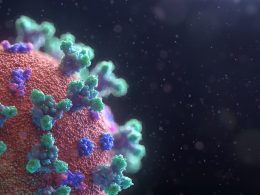In the quest for optimal health and well-being, we often overlook a fundamental aspect of our daily lives: the food we consume. Beyond satisfying our hunger, food has the remarkable ability to act as a form of medicine, playing a pivotal role in preventing and managing a wide range of health issues. This article delves into the concept of food as medicine, shedding light on how a nutrient-rich diet can be a powerful tool for maintaining good health and addressing various health concerns.
Food as Medicine: A Timeless Wisdom
The concept of food as medicine isn’t a new one. Ancient cultures, such as those in Traditional Chinese Medicine and Ayurveda, recognized the healing properties of certain foods thousands of years ago. In recent years, modern science has caught up, providing compelling evidence to support this age-old wisdom.
Food isn’t just a source of calories; it’s a complex matrix of nutrients, phytochemicals, and bioactive compounds that interact with our bodies on a cellular level. These interactions can have a profound impact on our health. For instance, foods rich in antioxidants can help combat oxidative stress and reduce the risk of chronic diseases like heart disease, cancer, and diabetes.
Preventing and Managing Health Issues
1. Heart Health:
A heart-healthy diet is one that is low in saturated fats, trans fats, cholesterol, and sodium. It’s rich in fruits, vegetables, whole grains, and lean proteins. Foods like fatty fish, nuts, and olive oil are packed with heart-protective nutrients like omega-3 fatty acids and antioxidants. Following a heart-healthy diet can help reduce the risk of cardiovascular diseases.
2. Diabetes Management:
For those living with diabetes, food plays a critical role in managing blood sugar levels. A diet that’s high in fiber, whole grains, and lean proteins can help stabilize blood glucose. Foods like cinnamon and bitter melon have been shown to have potential benefits in diabetes management.
3. Cancer Prevention:
While there’s no magical anti-cancer food, a diet rich in fruits and vegetables provides essential antioxidants and phytochemicals that can help reduce the risk of cancer. Cruciferous vegetables like broccoli, cauliflower, and kale are particularly known for their cancer-fighting properties.
4. Gut Health:
A healthy gut is essential for overall well-being. Foods like yogurt, kefir, and sauerkraut are packed with probiotics that support a balanced gut microbiome. Fiber-rich foods, such as whole grains and legumes, provide prebiotics that feed beneficial gut bacteria.

5. Bone Health:
A diet rich in calcium and vitamin D is crucial for maintaining strong bones. Dairy products, leafy greens, and fortified foods are excellent sources of these essential nutrients. Consuming foods with a balance of calcium and vitamin D can help prevent conditions like osteoporosis.
6. Mental Health:
The gut-brain connection highlights the influence of food on mental health. Nutrient-dense foods, particularly those high in omega-3 fatty acids, can positively impact mood and cognitive function. Leafy greens, fish, and nuts are examples of foods that support mental well-being.
The Role of Nutrient Density
The effectiveness of food as medicine is closely tied to nutrient density. Nutrient-dense foods are those that provide a high concentration of essential vitamins, minerals, and other bioactive compounds with relatively few calories. By prioritizing nutrient-dense choices, individuals can maximize the therapeutic potential of their diets.
Practical Tips for Harnessing Food’s Healing Power
- Diversify Your Plate: Incorporate a variety of fruits, vegetables, whole grains, and lean proteins into your meals to ensure a broad spectrum of nutrients.
- Minimize Processed Foods: Processed foods are often loaded with empty calories, sugar, and unhealthy fats. Reducing their consumption can significantly benefit your health.
- Moderation is Key: While nutrient-rich foods should be a cornerstone of your diet, it’s also essential to enjoy your favorite treats in moderation.
- Stay Hydrated: Water is a critical component of overall health. Staying adequately hydrated is essential for digestion, circulation, and the transport of nutrients throughout your body.
- Consult with a Professional: If you have specific health concerns or dietary restrictions, consider consulting a registered dietitian or nutritionist for personalized guidance.

Photo by Nataliya Vaitkevich: https://www.pexels.com/photo/flat-lay-photo-of-alternative-medicines-7615460/
Closing Thoughts
Food’s ability to serve as medicine is a powerful reminder of the critical role our dietary choices play in our overall health. By embracing a diet rich in nutrient-dense foods, we can prevent and manage a variety of health issues. It’s not about restriction but about nourishing our bodies and allowing them to thrive. So, the next time you sit down for a meal, remember that you hold in your hands a plate of potential healing, and each bite can make a difference in your health and well-being.












